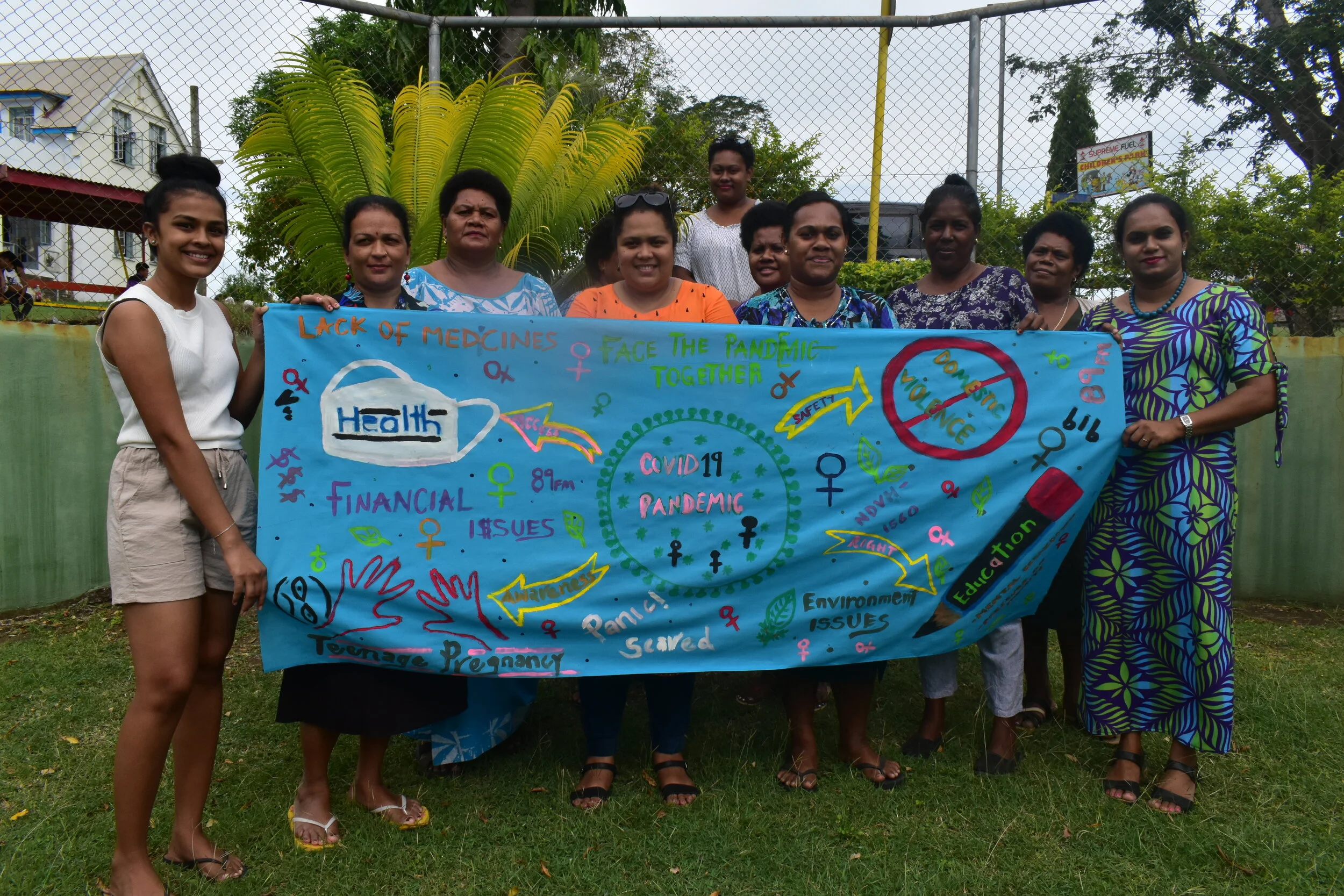“Women leaders...really have to be the jacks of all trades. You have to adapt…so you can continue to be the first responders,” said Unaisi Bakewa of the Tavua Disability Network.
In Tavua, the Rural Women Leaders Community Media Network (RWLCMN) shared the impact COVID-19 has had on their human security priorities.
In the last few months, many working in the western division have become unemployed due to the challenges facing the tourism industry.
“Some of them have been laid off from their jobs so they tend to come back to their families,” said Bakewa, adding that this had also caused overcrowded living conditions.
For Hitali Singh, a member of the Reservoir Youth Group and a university student from Tavua, connecting online for her classes had become difficult.
“I’m finding it hard to cope with my daily university routine. I have to buy recharge for online classes and studies as it is a difficult time and we are facing financial insecurity and doing online classes is difficult,” she said.
“We are not working and still schooling so we have to ask for money and then go buy recharge.”
Rishita Devi, President of the Tavua Red Cross said that the burden of care had increased for women during the pandemic, saying, “Women are the lead caregivers in the community.”
“All women are affected, they have more care and responsibility such as looking after children and elderly people at home,” she said.
This is on top of the unpaid work women are already expected to undertake:
According to Devi, “in rural areas, women are expected to spend more time in the gardens and farms.” (According to a Food and Agirculture [FAO] report, “Women form about half of the agricultural workforce...”)
With women holding the duty of care in the family, the pressure fell on the women of the family “to prepare three different meals in a day,” Devi said.
On top of that, health security had also been affected during the introduction of the COVID-19 restrictions.
Bakewa said that although the curfew had reduced crime in some area, the lack of mobility during those hours had been a major issue when caring for sick family members.
“Some of the families in the settlements that we went to for example, in Dramasi, they were unable to [go] to the hospital due to this lockdown in the middle of the night and they were trying to call out the numbers for 919 [Crime Stoppers] and 917 [Emergency Line] and there was no response,” Bakewa added.
Singh added, “We cannot take them to the hospital...because during the [curfew] there are no taxis, no vehicles available and to the people that don’t have their own vehicles, they have to face a lot of problems.”
Meanwhile restrictions remain in place despite Fiji not recording a case since April 21.
As a collective, the RWLCMN have continued to call for public adherence to the health ministry’s guidelines. However, they have also reiterated the need to provide resources for vulnerable groups and rural communities.

